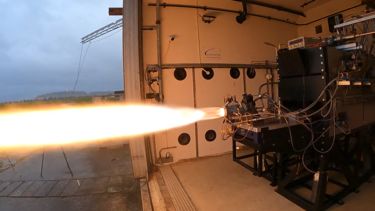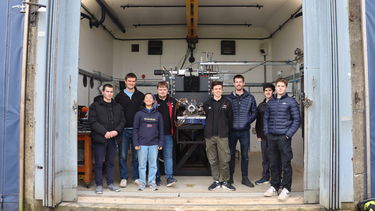The student-built AlSi10Mg engine smashed its design target of 3.5kN (kilonewtons) to reach a record 4.4kN thrust, paving the way for the UK's first student launch of a liquid-fueled rocket this summer.
This achievement is a major leap in proving aluminium's viability for rockets despite its melting point challenges. Aluminium is lightweight and low cost, but prone to losing strength at high temperatures, but with the right cooling it works as the team has demonstrated.
In the context of rocket engines, "hot fired" refers to a test where the engine is ignited and run for a short duration under controlled conditions. This is done outside of an actual launch or flight to ensure all engine components are working properly as well as gathering performance data on thrust, temperature and other parameters to ensure the engine meets design specifications.
Hot firing is a crucial step in the development and testing process of rocket engines and allows engineers to identify and fix any problems before the engine is used in a critical situation.
Dr Alistair John, Deputy Director of Aerospace Engineering, said: “Not only did the engine achieve far higher than its rated thrust, it also survived three hot firings with combustion temperatures exceeding 2750K. It is completely unscathed, demonstrating its reliability and readiness for reuse. Congratulations to the Sunride team! It's amazing how far we have come in the last few years.”
Formed in 2017, Project Sunride is a student-led rocketry team at the University of Sheffield and they currently hold the UK Open Altitude record at 36,274ft, which the team achieved in 2019 with their rocket "Helen".
Find out more about the team on their website.



